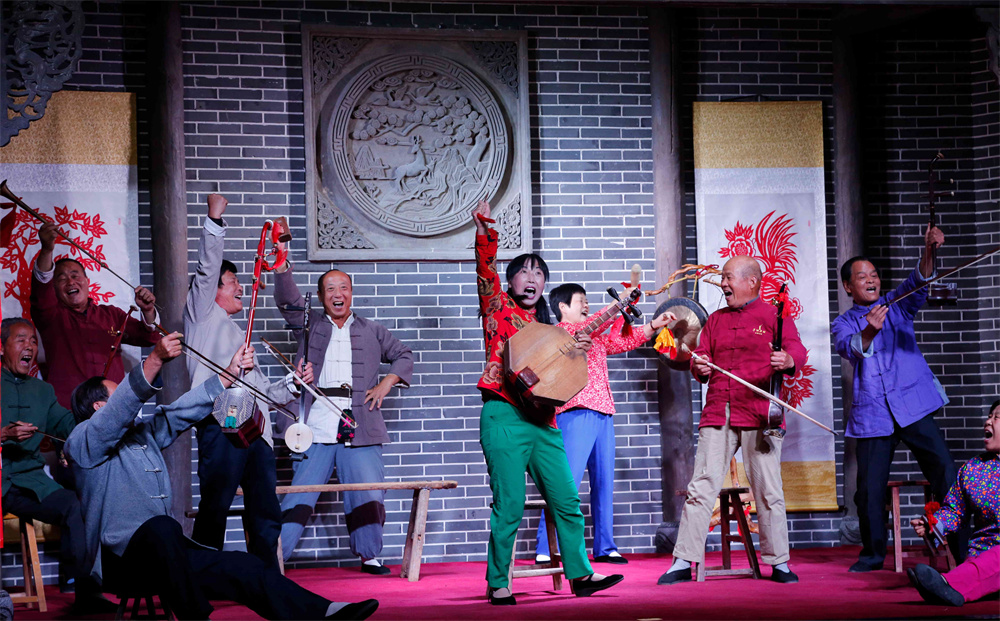
Huayin Laohua is the late Ming Dynasty and early Qing Dynasty, with Huayin City, Shaanxi Province, for a long time as the family drama of the Zhangjia family in Shuangquan Village, Huayin City (only the surname of the family, not outsiders). Its vocal cavity has a straight and high-pitched, majestic and heroic spirit, very pursuing a sense of freedom and casual pleasure, which sounds quite about the Western Han singing the great river to the east, and this kind of performance is also known as the "earliest rock" on the loess high slope.

Luoyin also introduced the tune of the Weishui boatman's horn, and adopted the drag cavity of one person singing and everyone helping (commonly known as Rabo); The accompaniment music does not use suona, and the clapping rhythm of the unique sandalwood board constitutes the unique strength of the play, making it rich in outstanding historical and cultural value, passed down from generation to generation, and performed for a long time. However, in view of the special situation of this drama (family drama), it is still in an endangered state of extinction, and it urgently needs long-term protection.

In 2006, Huayin Laohua was included in the first batch of national intangible cultural heritage list. In 2016, Tan Weiwei became attached to Huayin Laojiao Art because of the movie "White Deer Plain", and brought a song "Huayin Laojiao Shout" to the audience with Huayin's old artists at the CCTV Spring Festival Gala.
Viewing address: Huayin City Theater










